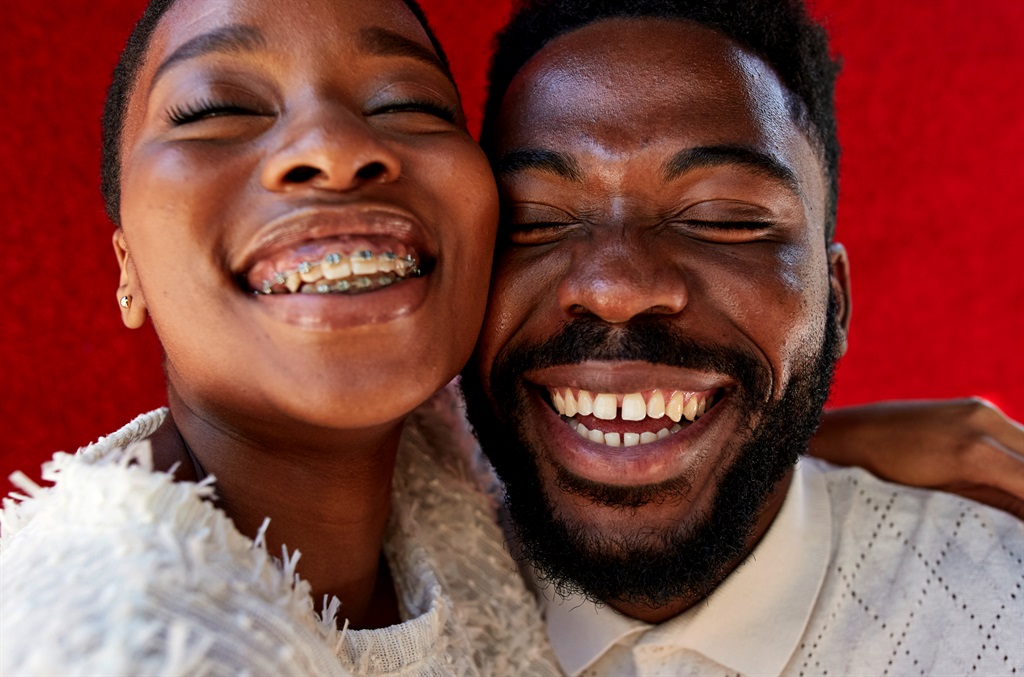
- For many, 2020 was possibly the loneliest year ever, as the human race went into forced hibernation and physical touch faced extinction.
- Global lockdowns affected marriages, relationships and threw a spanner in the works of singles who were hoping to mingle.
- One of the dating trends identified since the pandemic is "apocalypsing" – treating every relationship like it's your last.
- Sandton-based relationship expert and author Paula Quinsee helps us unpack this phenomenon that you probably shouldn't feel bad about.
There's no denying that the Covid-19 pandemic has changed the dating playbook and may perhaps even further impact the way people navigate romance going forward.
On the one hand, some long-term relationships and marriages took strain as they faced love lockdowns under global restrictions in the pandemic's bellowing infancy, and subsequently parted ways.
On the other hand, singles have experienced a plethora of dating trends, bursts of excitement, quandaries and sometimes headaches. So much so that some have decided to opt out of love until further notice despite their desire for human connection and intimacy.
READ MORE | A dating pool full of wokefish - How to spot one and release it from your net before it bites you
Why?
Well, for starters, conventional courting activities such as linking up for coffee, dinner, drinks or outdoor activities have been compromised as we yo-yo through various lockdown restrictions.
Plus, given South Africa's rate of intimate partner violence and sexual assault, women generally don't want (neither should they feel pressured) to meet a stranger for the first time at their private residence.
Ultimately, these factors have resulted in a tedium of talking stages that fizzle out into sweet nothings.
But there's another side to "love in the time of Covid".
The often-posed hypothetical question "what would your strategy for survival be in an apocalypse?" seems to actually have an answer now.
The strategy is love... or at least something like it.
A new dating trend dubbed "apocalypsing" has been identified by online dating service Plenty of Fish, which polled over 2 000 singles in the US.
Their definition: "Treating every relationship like it's your last."
So the pandemic did not only give rise to panic buying but apparently panic dating too.
To put it in Refinery29's words: "You meet someone you're infatuated with and then – bada bing, bada boom – suddenly you're super serious, firmly established in each others' Covid bubbles and ready to plan your life together."
This Refinery29 article also reveals that "one-third of singles [Plenty of Fish] polled said they know someone who's done this. Gen Z is particularly prone to it, with nearly a third admitting to the trend."
READ MORE | Why do regrets over lost love often stop us being happy – and how can we move forward?
Different to a "when you know, you know" romantic hunch, apocalypsing may be symptomatic of potentially unhealthy infatuations. Ignoring red flags, skipping courting stages and sleeping with your rose-tinted glasses on.
Apocalypsing may take the form of making things official at an insanely fast pace – possibly over text after a maximum of three FaceTime calls, relocating for a partner prematurely and moving in together within a short space of meeting (beware the hobosexual while you're at it).
However, there's no shame in romantic optimism and doing whatever makes you happy for as long as you need to.
The concern with apocalypsing, though, is based on the fact that the pandemic – and the lockdowns – have catalysed the need for human contact, and as such, one may not be able to discern whether their heightened feelings for a prospective partner are genuine or yeasted by loneliness.
Not to mention the anxiety and stark awareness of our mortality that the Covid-19 pandemic has triggered. People want to fully experience life's joys and no longer see the point of postponing the process of making memories.
In this social climate then, finding a "forever for now" can hardly be frowned upon.
READ MORE | Experts reveal Broken Heart Syndrome cases are soaring amid the Covid-19 pandemic
In light of this, W24 reached out to Sandton-based relationship expert and author Paula Quinsee who explained that it's perfectly normal to be seeking connection right now.
It's natural
The most natural thing many people want to do is connect with their loved ones, whether that be family members or friends. With social distancing, we have been touch starved of human connection. Physical touch is vital, not only for our mental and emotional health, but our physical health, too.
Researchers have found that there appears to be an inflection point where the frustration and hardship of being cooped up inside suddenly gets harder to endure and the further we continue in lockdown, the more we shift into that phase. Coping skills and tools that worked last year will perhaps not be as effective this year as reality sinks in and we experience more of the same conditions going forward.
This leads to the risk of single people hooking up with others for all sorts of reasons – such as loneliness, not wanting to be isolated or alone, fearing their life is passing them by or that they are losing out on important phases of life or it's the end of the world as we know it with so much uncertainty about what the future holds, also known as "apocalypsing".
Paula has also helped us better unpack this phenomenon by answering a few pressing questions you may have before taking a leap of faith with a new boo during a pandemic.
Is it a form of infatuation or anxiety?
Based on what we have been experiencing this past year during the pandemic, many people are experiencing different levels of anxiety due to their circumstances and environment. Having someone there to provide a sense of comfort, support and nurturing can help ease our anxiety.
When people lack love and touch (connection) in their lives, it can have a negative impact on their mental and physical well-being. Our bodies produce oxytocin (also known as the love or cuddle hormone), which plays a role in social bonding (attachment) and can help to tackle loneliness.
Even a gentle touch from a stranger has been shown to reduce feelings of social exclusion.
How can you protect yourself from manipulation?
We all know that the beginning stages of any relationship usually consist of a mixture of attraction, infatuation, and lust before love comes into play.
Rushing into a relationship to avoid feeling lonely or that life is passing you by is not your only option. Globally, some countries are encouraging "social bubbles". This is a restricted form of face-to-face contact where you can have contact with people outside of your household, but at the same time keeping the number of people tightly restricted. In other words, keep your circle small and keep to the same circles. This way you can control who you come into contact with and reduce the possibility of being infected.
It's also important to be very clear on why you are getting into a relationship. Is it for all the right reasons? Rather err on the side of caution and, if need be, give yourself a version of the 90-day rule before making any drastic decisions about commitment or shacking up.
The 90-day rule was initially aimed at not having sex with someone in the first three months to determine whether they really were interested in you or in just one thing. However, in current conditions, you can use the same principle to help you get to know each other better and help you make a more conscious and informed decision as to the longevity of the relationship, instead of rushing into shacking up with someone and potentially ending up disappointed and heartbroken in the long run.
READ MORE | The science of falling in love - Butterflies are good, but chemistry determines longevity
Is apocalypsing anything to feel bad about given the times we're in?
The average person does not like to be isolated for long periods of time, leaving people feeling disconnected, isolated and alone. Additionally, there is the risk of depression setting in when one is isolated for too long. According to the World Health Organisation, 450 million people currently suffer from mental disorders, yet only two-thirds of them seek help.
Multiple research studies have been done on the impact and effect of loneliness on us as human beings. "In fact, research studies state that loneliness has the same impact on our health as smoking 15 cigarettes a day, making it even deadlier than obesity."
So as we've come to realise over the past few months, change is the only constant and the more we become comfortable operating in an ever-changing environment, the better off our well-being and the happier we will be.
What's important is for individuals to seek help sooner rather than later, whether it be as a preventative measure or because they are feeling challenged and like they're not coping.
So how do we better navigate catching (apocalyptic) feelings?
In times of chaos and disarray, we can become overwhelmed, stressed and anxious and when fear sets in, irrational behaviour and thoughts can overtake us, like shacking up with someone to avoid being alone.
Most important is to keep a reality check on your emotions, being aware of why you are doing the things you are doing and whether it is benefitting you positively or negatively. It is important to know that it is okay to not be okay.
Things you should consider:
• Take care of your mental health and well-being – daily routine, journaling, speaking to friends and family, exercise, reading, listening to uplifting music, podcasts, TED Talks, etc.
• Sign up for online classes or forums that align with your hobbies and interests.
• Speak up if you are feeling anxious, stressed or worried – make use of online coaching and counseling services.
• If your company has an employee wellness programme, reach out and make use of their services.
• It's important to seek help sooner rather than later, whether it be as a preventative measure or because you are feeling challenged.
• Alternatively, reach out to national support services such as LifeLine 0861 322 322 or SADAG 0800 567 567.
This helps us to manage ourselves, our emotions, our home and work environment, anxiety and stress levels. It enables us to work through challenging situations, adopt a positive mindset and implement boundaries where necessary.
* Paula Quinsee is a relationship expert and passionate advocate for creating healthy relationships at home, in the workplace, and against GBV, to co-create a more human connected world and positively impact people's lives. Paula is also an international speaker and author of Embracing Conflict and Embracing No.
Follow us on social media: Facebook, Twitter, Instagram
Sign up to W24's newsletters so you don't miss out on any of our stories and giveaways.




 Publications
Publications
 Partners
Partners












